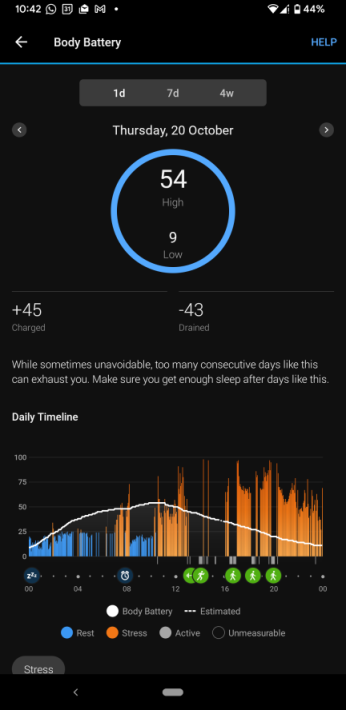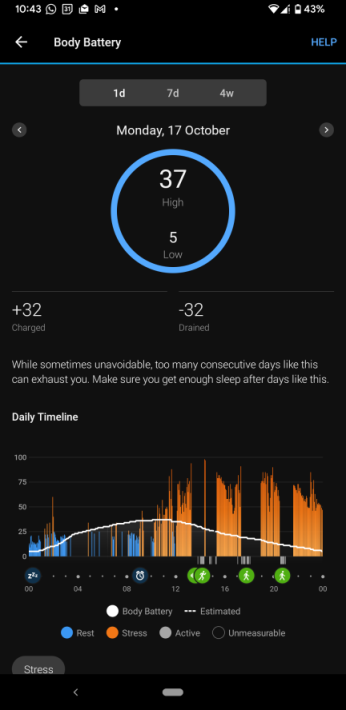I have seen some posts on the forums saying that after a good sleep your body battery should be between 75 and 100. The highest I have ever got mine up to is 50 after a good sleep, but usually it's about 30 when I wake up. Even though the body battery shows a low value, and my sleep stress is going to low and sometimes medium, I physically feel good after waking up. I only feel bad after looking at the Garmin app and it's telling me I should be exhausted.
My stress level when awake is always above 25, even when I'm not stressed at all.
I thought it was just because Garmin was still learning about my normal levels, but it's been about 6 months now and it still doesn't seem right. I have a vivosmart 5 and tried swapping between left and right arms. Wearing it tighter or looser, moving it closer to my wrist and further up my arm, but nothing seems to give results comparible to how I actually feel.
Is there anything else I can try, or is it just not compatible with everybodies body :) ?




